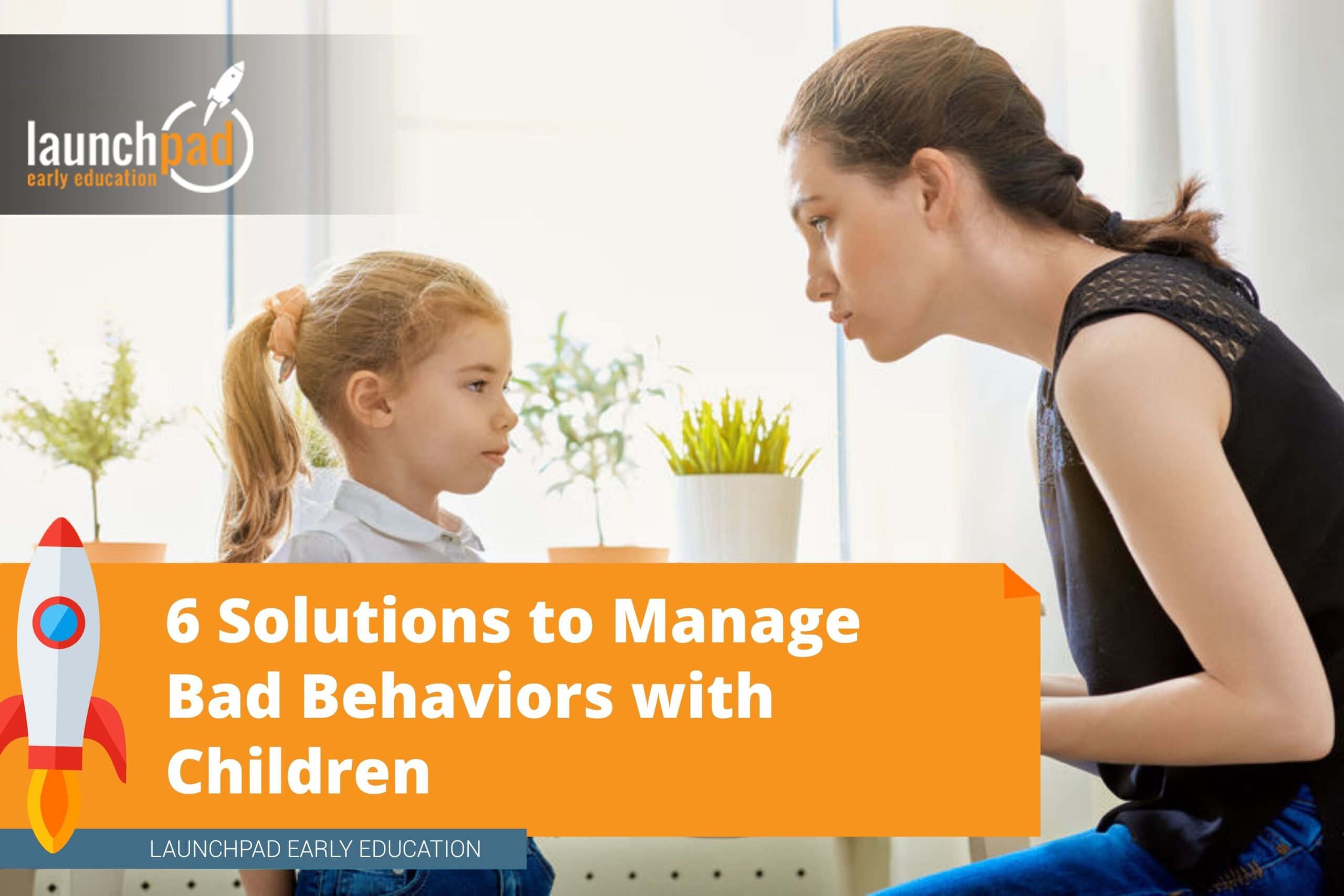Something every parent grapples with at one time or another is a child’s difficult behaviors. You are probably familiar with this type of scenario: your kids are fighting with each other, or one is hitting the other sibling repeatedly or having a tantrum during dinner. While some parents think that children are just being “bad”, it’s important to remember that children don’t just misbehave for no reason. Bad behavior stems from somewhere, and the source may not be immediately or easily identifiable on the surface.
So, why do kids misbehave? Some of the reasons may include too much screen time, craving your attention, not feeling well, or stress. Because there are many factors that can cause negative behavior with kids, you might be wondering how to elicit behavioral change. Fortunately for you, we have included a few helpful solutions for addressing and managing bad behavior with children.
Set higher expectations for behavior
One of the most effective strategies you can utilize when you encounter negative behavior is setting higher expectations in your home. If we immediately give up and tolerate bad behavior from our children, this will only enable them to continue acting this way in the future.
Help your child feel that you believe they can behave more appropriately. Constantly encourage and cheer them on so they are more likely to choose to cooperate. Avoid labeling your child as “difficult”. Instead, try viewing him or her in a more positive light so that your child is compelled to live up your expectations.
Ignore the misbehavior
Another strategy you can try is not reacting to the misbehavior. More often than not, children act out because they crave attention. Sometimes it may feel that being reprimanded is better than no attention at all. However, the best thing to do is to not react, and ignore negative behavior.
Some parents may worry what will happen if they ignore their kids during a meltdown. It takes a lot of willpower to stop yourself from attending to a child who’s screaming at the top of his or her lungs. However, once your child sees that this type of behavior will not gain any attention from you, he or she will eventually stop. Otherwise, your little one will continue to use tantrums to get what he or she wants in the future.
Avoid screaming
Are you familiar with the so-called “parental tantrum”? This happens when parents also scream and shout in response to their kids in a desperate attempt to make them stop. Keep in mind that this is never an effective tactic. In fact, it may even make your child act out even more.
If you ever feel like you’re on the verge of an outburst, remind yourself that your child isn’t your enemy. Breathe in, breathe out, and remain calm. Your child’s behavior may be ugly, but remember there is always a reason why he or she is acting this way. When children melt down, it’s because they need our help.
Validate
As previously mentioned, young children do not just have tantrums for no reason. They exhibit difficult behaviors because of some underlying reason. As a parent, it’s your job to find out what the reason is. For example, if your child hit his sibling or pulled her playmate’s hair, take time to acknowledge and validate with your child exactly what went wrong. Make sure not to automatically resort to don’t scolding your child for his or her actions. First, find out the “why”, and let your child know you understand. However, be sure to still your little one a corresponding consequence to address and correct negative behaviors.
Empathize
A loving and positive parent-child relationship is crucial when it comes to instilling discipline and shaping a child’s behavior. Nurture your relationship with your child while addressing negative behaviors by showing empathy. Ensure that your child feels loved and cared for. Help young children understand that they are not being punished because they are “bad”. Rather, explain to your little one that he or she is receiving consequences as a result of his or her actions. Remind children that this is because you love and care for them, and only want what’s best for them.
Give hugs
Hug your kids often! Hugs can help strengthen the bond and connection between parents and kids. Loving physical contact can help heal the sense of disconnection and barriers that may cause them to misbehave. When you give your kids a daily dose of cuddles, it helps them feel more loved, which in turn can make them want to be more cooperative.
Turning a child’s bad behaviors into positive ones doesn’t happen with a snap of a finger. But you can encourage more appropriate behavior with your little one with the help of these tips.
For more parenting resources, please visit Launchpad Early Education.


